第230章 CHAPTER LV. A GERMAN BOOKSELLER AND MARTYR.(4)
"Oh, my poor, timid roe," said Palm, deeply moved, encircling his weeping young wife with his arms. "How your faithful, innocent heart is fluttering, as if the cruel hunter were already aiming his murderous arm at us, and as if we were irretrievably doomed! Calm yourself, dearest, I pledge you my word that I will comply with your wishes. We will burn the pamphlet; but previously you shall learn, at least, the spirit in which this pamphlet, for which your poor husband will have to suffer, perhaps, a few days' imprisonment, is written. Just listen to me! The author is speaking here of Bavaria, and of the oppressions to which she is a prey since we have concluded an alliance with France. He says: 'Since that time the Bavarian states have become the winter quarters, and been treated in a manner unheard of since the Thirty Years' War. At that time the Austrians, under Tilly and Wallenstein, were pursuing precisely the same course now followed by the French, and if their emperor draws no other lessons from that war, he has closely copied, at least, the system of obtaining supplies for an army which was then in use.
Trustworthy men have assured us that the French ruler, when in Munich the most urgent remonstrances concerning the oppressions under which the people of Bavaria were groaning were made to him, replied in cold blood: "My soldiers have not done so. These are times of war--let me alone, and do not disturb my plans." Already in December last the treaty of Presburg was signed, and from that moment Austria had the prospect of getting rid of her enemies. Had Bavaria not an equal right to enjoy the advantages of this treaty?
These advantages could be none other than that the French army left the Bavarian territories and relieved the people from further oppressions. But just the reverse took place. The French withdrew from the states of the German emperor to occupy Bavaria, and celebrate here, by the ruin of all the inhabitants, their victories in orgies and carousals continued for many months. If I refer to the ruin of the inhabitants, the words should be taken in their literal meaning, and not as an expression merely chosen to depict the misery the French have brought upon Bavaria. It is not yet five years since a hostile army of the same nation lorded it over that country. And nobody will venture to assert that the wounds then inflicted upon the inhabitants should have been healed in so short a time. The farmer, deprived of his animals, had scarcely commenced to provide himself again with horses and cattle, when the passage of the French, in every respect equal to an invasion, took from him again this important portion of his personal property. Fraud, cunning, and force were alternately resorted to for this purpose. Tears and the most humble supplications were rejected with sneers, and even blows.
The French called themselves "preservers of Bavaria." Forsooth a preservation similar to the fate of the patient whom one doctor would have sooner sent into the grave, and who is dying more slowly under the hands of another. If friendship ever was a mockery, it was so on this occasion. But it is part of Napoleon's plans to exhaust Germany to such an extent as to render her incapable of becoming dangerous for him even in the most remote future. He selected several highly effective expedients for this purpose. Dynasties, the ancestors of which date back to the most remote ages, and one of which long since produced emperors and kings, were united with Bonaparte's family by the closest ties of blood, and thus the ruler of France has already become the relative of the courts of Baden, Bavaria, Sweden, and Russia. Not content with this, he offered royal crowns to Bavaria and Wurtemberg, and the German emperor had to assent to this measure in the treaty of Presburg. Thus Germany has got two new kingdoms, and--'" [Footnote: From the celebrated pamphlet. "Germany in her Deepest Degradation."]
"Oh, I implore you, do not read any further," exclaimed Anna, suddenly interrupting her husband. "It frightens me to hear you repeat those threatening and angry words; they fall upon my heart like a terrible accusation against you! Believe me, my beloved, if that proud and ambitious Emperor Napoleon should hear of this terrible pamphlet--if its contents should be communicated to him, you would be lost: for, having no one else on whom to wreak his vengeance, he would revenge himself on you!"
"But he will not have me either," said Palm, smiling, "for I shall take good care not to set foot on French territory; I shall not leave Nuremberg, and thank God, that is German territory."
"But the French frontier is close to us, for wherever there are French troops there is France. Napoleon's arm reaches far beyond her frontiers, and if he wants to seize you he will do so in spite of all boundary-posts, German laws, and your own citizenship."
"There is really something so convincing in your fears that it might almost infect me!" said Palm, musingly. "It would have been better, perhaps, after all, for me not to have come back, but to remain in Prussian Erlangen!"
"Return thither," exclaimed Anna, imploringly; "I beseech you by our love, by our children, and by our happiness, return to Erlangen!"
"To-morrow, dearest Anna!" said Palm, smiling, clasping his young wife in his arms--" to-morrow it will be time enough to think of another separation. Now let me take a few hours' rest, and enjoy the unutterable happiness of being at home again!--at home with my wife and with my dear little ones!"